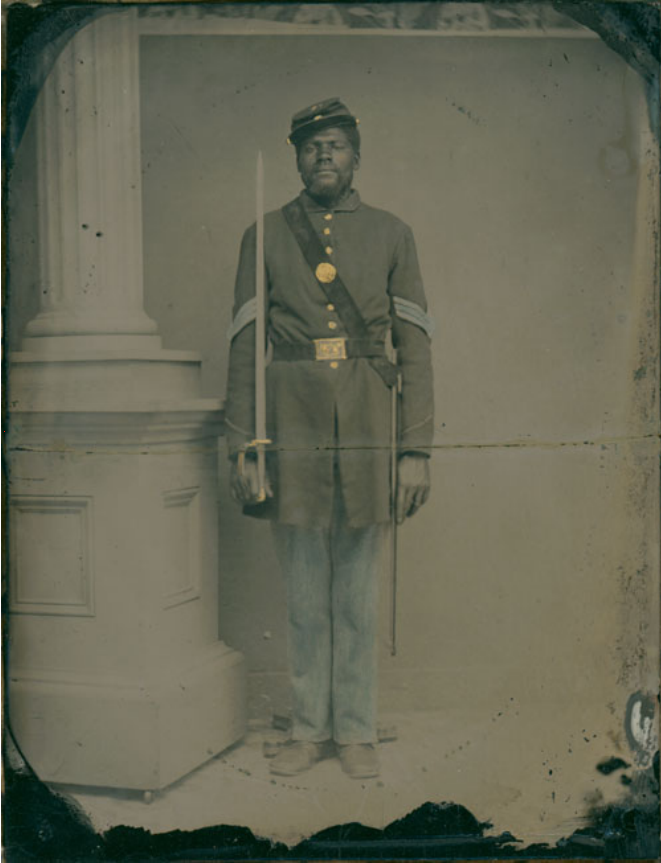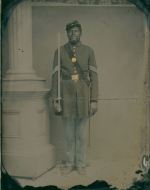Created by Megan Dettmer on Sun, 10/11/2020 - 10:47
Description:
During the American Civil War, African Americans played different roles for the Confederate and Union armies. Some Confederate soldiers brought their slaves to war with them, to serve them and act as laborers. For the Union, African Americans had the opportunity to play a more active role. While there was frustration among some of the black soldiers who held menial roles, like servants or laborers, there were many black soldiers who fought on the battlefield. Life as a soldier during the bloody Civil War was difficult enough already, but for those African Americans soldiers, there were other difficulties to face as well. Discrimination was present among Union infantries. Letters written from soldiers in the all-black 54th Massachusetts Infantry showed insight to African American views on the war, including the discrimination they faced. Some of the soldiers wrote home and addressed the issue of unequal pay. White Union soldiers were paid $13 a week, while black Union soldiers were only paid $10. They also had a clothing allowance at $3, meaning they were only paid $7. As a way of protesting this discrimination, some black soldiers decided to not accept payment until they received the same amount as white soldiers.
Even though discrimination was present, the formation of all-black regiments encouraged African Americans to fight for their rights. At the beginning of the Civil War in 1861, there was no recruitment of black men to fight for the Union. But in 1863, when they could finally sign up to fight, these men began to feel some sense of citizenship. Portraits taken of soldiers in the 54th Massachusetts Volunteer Infantry, as well as other all-black regiments, allowed these men to fully embrace their identities. This portrait of Sergeant Henry F. Steward of the 54th Massachusetts is one example. Receiving uniforms and posing for a portrait enhanced their feelings of pride and patriotism. The portraits embodied and represented freedom. These black soldiers were sent off to fight for their freedom alongside white men, supported and encouraged by their hometowns. Fighting for the Union allowed them to finally feel like real, free citizens of the United States.
Works Consulted:
Brown, Katie O’Halloran. “Letters of Black Soldiers from Ohio Who Served in the 54th and 55th Massachusetts Volunteer Infantries during the Civil War”. Ohio Valley History, vol. 16, no. 3, 2016, p. 72-79. Project MUSE. muse.jhu.edu/article/631460.
Robbins, Peggy. “The 54th Massachusetts’ War within a War”. Military History, 2003, p. 62-70. ProQuest, https://search.proquest.com/docview/212668658?accountid=13360.
Willis, Deborah. “The Black Civil War Soldier: Conflict and Citizenship.” Journal of American Studies, vol. 51, no. 2, 2017, p. 285-323. Cambridge University Press and British Association for American Studies, https://doi.org/10.1017/S002187581700038X.


